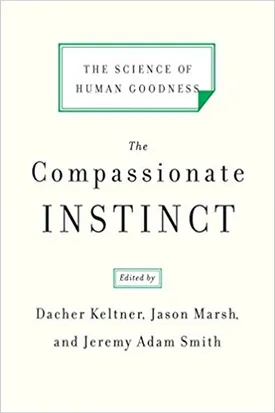Dacher Keltner
Dacher Keltner is an American professor and researcher in the field of psychology. He is best known for his work exploring the origins and expressions of emotions, the foundations of morality, and the evolutionary psychology of power and social hierarchies. His books include The Power Paradox: How We Gain and Lose Influence, Born to be Good: The Science of a Meaningful Life, and The Compassionate Instinct: The Science of Human Goodness.
Keltner was born in 1963 in Palo Alto, California. He attended the University of California, Berkeley, earning a BA in psychology and an MS in anthropology in 1986. Immediately thereafter, he attended graduate school in psychology at Stanford University and received his PhD in 1990.
Keltner's research focuses on the evolutionary and social psychology of emotions and morality. He is widely recognized for exploring the nuances of emotions such as embarrassment, pride, and awe. He has tied these emotional states to human culture and biology—enabling us to better understand the social implications of our emotions.
Keltner’s research also includes topics such as the characteristics of power, the foundations of morality, and child development. His book, The Power Paradox: How We Gain and Lose Influence explores the good and bad ramifications of power, such occupations appear to have on achieving higher social status and power. In The Compassionate Instinct: The Science of Human Goodness, Keltner dives into examining human nature to uncover the origins of human goodness and altruism. His most recent work, Born to be Good: The Science of a Meaningful Life continues Keltner’s exploration of the scientific findings behind happiness and well-being.
Keltner has also been occupied with the scientific examination of how we make judgments with morality. In 2012, he co-authored (with Jonathan Haidt), The Righteous Mind: Why Good People Are Divided by Politics and Religion, which examines why most social issues are so contentious and how morality influences our political and religious beliefs.
Keltner has had a prolific academic career. He has authored or co-authored over 150 books and articles. He is currently a professor of psychology at the University of California, Berkeley where he is the founding director of the Berkeley Social Interaction Lab. Keltner is an adjunct professor of both the Stanford Medical School’s Center for Compassion and Altruism Research and Education, as well as an adjunct professor at the Center for Creative Leadership in San Diego.
In recognition of his contributions to science, Keltner has been awarded numerous honors. In 1995, he was awarded the American Psychological Association Award for Distinguished Early Career Contributions. He has also been awarded the Association for Psychological Science Anne Anastasi Early Career Award. With colleagues from the Berkeley Social Interaction Lab, he received the Human-Animal Bond Research Institute’s Science Advisory Award in 2004.
Keltner's research has been instrumental in our understanding of emotions and human behavior. His work has enabled us to better comprehend our responses to the situations we face and make more informed decisions. His books have been illuminating, introducing complex psychological subjects to the ordinary reader. He continues to be active in his research, and his groundbreaking insight is sure to shape our understanding of psychology for years to come.

